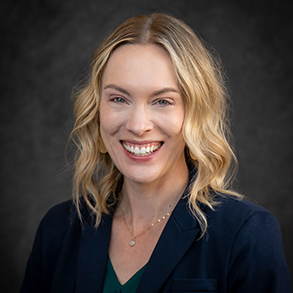I know it’s tempting to schedule as many OB/Gyn rotations as possible, but I strongly recommend against that. Residency programs do not look at how much Ob/Gyn you learned in medical school—that’s what residency is for. Residency programs look at how well rounded you are, your commitment to be the best physician you can be, and your fit with their program. I recommend one or two, at most three, OB/Gyn and OB/Gyn subspecialty rotations, then a selection of other areas that will enhance your future OB/Gyn training.
Recommended Year 4 OB/Gyn Schedule
- Study for and take Step 2 (this score is important in the Ob/Gyn application).
- Sub-I in Ob/Gyn-ideal to get strong letter of recommendation.
- 1 away rotation (or internal Ob/Gyn rotation connected with Ob/Gyn residents)-ideal to get strong letter of recommendation.
- Fill in: Emergency medicine/underserved/another clinical elective-could also get strong letter of recommendation from this.
- Recommend an Emergency medicine/underserved/another clinical elective in October. For Ob/Gyn, the interview offers tend to go out at the end of October and interviews start in November and go through December.
- Rotations in November–December need to be time flexible to allow for interviews. Virtual courses with flexible schedules may work in this time frame. Strongly consider taking time off at some point in these 8 weeks to complete interviews, which are usually completed by the beginning of January.
- Can do a 2- or 4-week clinical rotation in January.
- Complete Emergency medicine and rural/urban underserved rotations if not yet done.
- Complete remainder of other rotations with goal to give a broad foundation of medicine (not a time to do further Ob/Gyn rotations-that is what residency is for).
- Suggestions:
- Transition to residency (Highly recommended).
- Anesthesia.
- Breast surgery (surgery sub-specialty).
- Pediatrics-Neonatal/Perinatal (NICU).
- Dermatology.
- Plastic surgery.
- Psychiatry.
- Internal Medicine-Infectious Disease.
- Radiology/ultrasound.
- Geriatric medicine.
- Hospice and Palliative Medicine.
- Pediatrics-Medicine Genetics and Genomics.
- Endocrinology.
- Addiction Medicine.
- Research.
- Urology.
Must complete
Sub-I in OB/Gyn (4 weeks)
Emergency Medicine (4 weeks)
Rural/urban underserved (4 weeks)
Nice to complete
(as you pick your 24 weeks of rotations)
Consider away rotation at 1 desired residency (this is a 3–4 week interview/audition).
Otherwise, a selection of electives that give a broad foundation of medicine:
Transition to residency (Highly recommended).
Anesthesia.
Breast surgery (surgery sub-specialty).
Pediatrics-Neonatal/Perinatal (NICU).
Dermatology.
Plastic surgery.
Psychiatry.
Internal Medicine—Infectious Disease.
Radiology/Ultrasound.
Geriatric medicine.
Hospice and Palliative Medicine.
Pediatrics-Medicine Genetics and Genomics.
Endocrinology.
Addiction Medicine.
Research.
As always, feel free to contact me by email with any questions.
Dawn Kopp, MD, MPH she/her
Vice Chair, OB/Gyn
dawn.kopp@wsu.edu
office: 509-368-6905
Make an appointment with me using Bookings.
